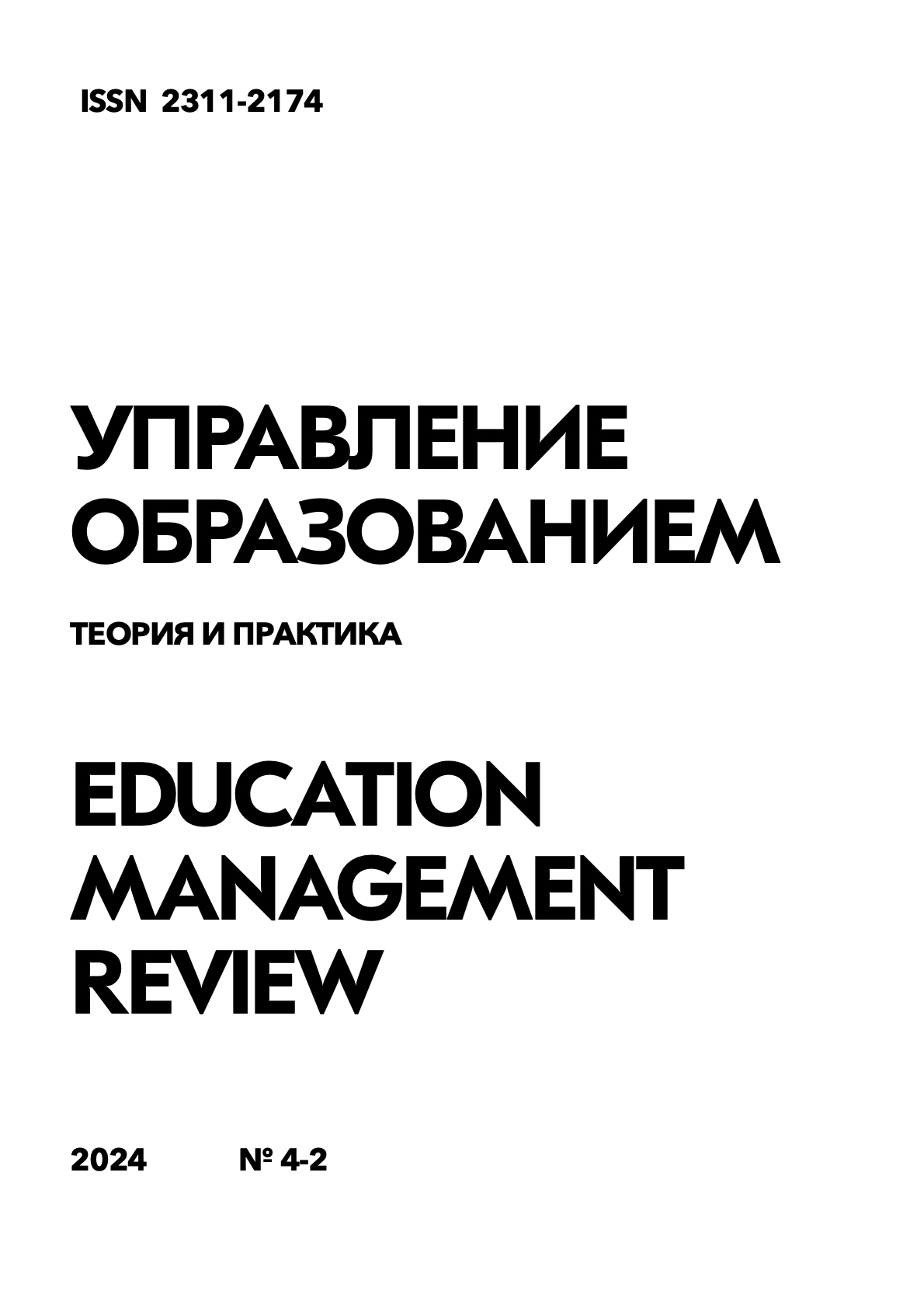Interdisciplinary integration studies in music higher education
Keywords:
interdisciplinarity, integration, music education, pedagogy, higher education, vocational training, creativity, innovation.Abstract
This scientific study examines interdisciplinary integration processes in the field of higher music education from a pedagogical point of view. The purpose of the work is to identify and analyze key trends, problems and prospects for the development of integration studies in the context of training professional musicians. Materials and methods include a comprehensive analysis of scientific literature on this topic, studying the experience of leading music universities in Russia and abroad, as well as conducting an empirical study with the participation of 120 students and 30 teachers of music faculties. The methods of questioning, interviewing, pedagogical observation and statistical data processing were used. The results of the study showed that interdisciplinary integration in music education contributes to the formation of a holistic picture of the world among students, the development of creativity and critical thinking. It was revealed that 78% of the surveyed students consider an interdisciplinary approach important for their professional development. At the same time, 64% of teachers note the insufficient methodological development of this area. It was found that the most effective forms of integration are joint creative projects (92%), scientific conferences (86%) and master classes (81%). The conclusion is made about the need for further development of the theoretical and methodological base of interdisciplinary research in music pedagogy, the development of innovative educational technologies and strengthening cooperation between various fields of knowledge. The results obtained can be used to improve educational programs and improve the quality of musicians' training in higher education.
References
Гуревич П.С. Музыка и творчество в человеческом измерении // Личность. Культура. Общество. 2017. Т. 19. № 1-2(93-94). С. 178-188.
Зеер Э.Ф. Методологические основания развития транспрофессионализма педагогов профессионального образования // Образование и наука. 2017. Т. 19. № 8. С. 9-28.
Илларионова Н.Н. Междисциплинарная интеграция как условие повышения качества подготовки студентов музыкальных вузов // Гуманитарные науки и образование. 2019. Т. 10. № 4(40). С. 106-112.
Каргапольцева Н.А., Масликова Э.Ф. Междисциплинарная интеграция в условиях университетского образования // Вестник Оренбургского государственного университета. 2012. № 2(138). С. 82-88.
Колышева Т.А. Подготовка педагога-музыканта в условиях интеграции педагогики музыкального образования и педагогики искусства // Ярославский педагогический вестник. 2013. Т. 2. № 4. С. 210-215.
Малинковская А.В. Методология – «магический кристалл» музыкально-педагогической науки (размышления о научной школе Эдуарда Борисовича Абдуллина) // Вестник кафедры ЮНЕСКО «Музыкальное искусство и образование». 2015. № 2(10). С. 39-55.
Николаева Е.В. Музыкальное образование в России: историко-теоретический и педагогический аспекты: Монография. М., 2002. 345 с.
Ражников В.Г. Диалоги о музыкальной педагогике. М.: Классика-XXI, 2004. 140 с.
Рапацкая Л.А. Формирование художественной культуры учителя музыки в условиях высшего музыкально-педагогического образования: автореф. дисс. ... д-ра пед. н. М., 1991. 47 с.
Cowan J. Strategies for developing a community of practice: nine years of lessons learned in a hybrid technology education master's program // TechTrends. 2012. Vol. 56(1). P. 12-18.
Fung J., Gromko J. Effects of active versus passive listening on the quality of children's invented notations and preferences for two pieces from an unfamiliar culture // Psychology of music. 2017. Vol. 45(5). рр. 695-707.
Jorgensen E.R. The Art of Teaching Music. Bloomington: Indiana University Press, 2008. 341 p.
MacDonald R., Hargreaves D., Miell D. Musical Identities. Oxford: Oxford University Press, 2002. 224 p.
Parncutt R., McPherson G. The science and psychology of music performance: creative strategies for teaching and learning. Oxford: Oxford University Press, 2002. 388 p.
Downloads
Published
How to Cite
Issue
Section
License

This work is licensed under a Creative Commons Attribution-NonCommercial-NoDerivatives 4.0 International License.




